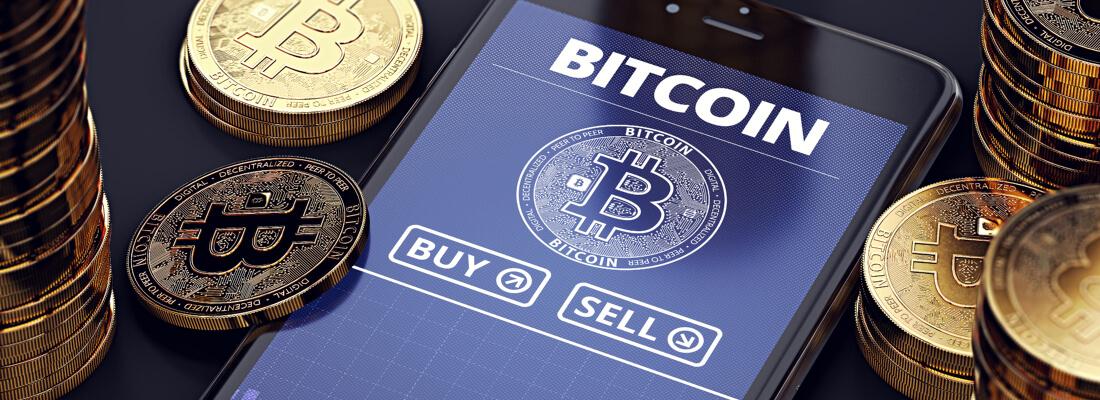
Does it seem like everyone you know is buying Bitcoin? Before you jump in the game and put a dollar/euro/yen into any cryptocurrency, it’s important to understand the risks.
You’ve probably heard how Bitcoin’s value has both risen and fallen drastically (often in a matter of hours or days). Just like you protect your other financial assets, it’s important to keep your Bitcoins safe in a wallet. We’ve done the research and found the best Bitcoin wallets that you should be using.
What Is a Bitcoin Wallet and Which One Is Best?
As the name suggests, a cryptocurrency wallet is where you keep your virtual currency. You should never leave any cryptocurrency, including Bitcoin, on the exchange website where you bought it. It must be stored in a wallet.
Like the wallet you probably carry around with you every day, there are different types of cryptocurrency wallets with advantages and disadvantages to each. We’ll mainly focus on the wallets that can store Bitcoin, but many of them can hold other popular cryptocurrencies, too.
While picking the most secure option may seem like the best solution, it’s not that simple. Ask yourself the following questions to help you decide what the best Bitcoin wallet will be for you.
- How much currency do you have or plan to buy? Whether you’re just dipping your toe in or plan to hoard thousands of dollars of Bitcoins, quick access is key.
- Is Bitcoin an investment where you plan to buy, sell or use your coins often? How often you access your stash is an important consideration.
- Will you need access to your stash on the go? Not all storage options are portable.
Before We Discuss the Best Bitcoin Wallets, Let’s Cover a Few Basics
For instance, what’s the difference between a hot wallet and a cold wallet? A hot wallet is always online and connected to the Internet, while a cold wallet can be disconnected from the web. The idea here is that any time you’re online and connected to the Internet through a computer, smartphone or tablet, you’re susceptible to hacking.

You’re probably thinking a virtual currency has to be connected to the rest of the world in order to use it. And that’s true. But that doesn’t mean you have to keep your private keys—the unique tools used to transact your Bitcoins—constantly engaged.
Are there public keys, too? Yep. Each Bitcoin transaction involves a public key viewable by anyone accessing the blockchain (the technology that moves cryptocurrencies), but your secret private keys are needed to complete any transaction. People can send you money using your Bitcoin address, but your private keys are still needed. Just remember, every transaction involves public and private keys.
Our Picks for the Top Bitcoin Wallets
Below are our Bitcoin wallet reviews. Keep in mind that the best cryptocurrency wallet for you will depend in a large part on how you plan to invest in the currencies. Will you invest a large sum of money? Do you need to buy and sell quickly or is maximum security your priority? No single Bitcoin wallet can do it all, but we’ve found the best options for each type of blockchain wallet.
Software/Desktop Wallet
A software or desktop wallet is a program located on your Mac or PC that connects to the blockchain but also stores your Bitcoins offline. Electrum is one of the oldest platforms and still one of the best Bitcoin wallets. It’s a free piece of software you download from their website which allows you to keep your Bitcoin private keys encrypted offline on your computer, but once you login, it can connect quickly to the Bitcoin blockchain.
Mobile Wallet
In an age where we use computers less and smartphones more, mobile wallets are very popular. Plus, you’re likely to always have your phone with you (much like your real wallet), so wallets like the Blockchain wallet allow easy access to your coins. Inevitably, there’s some risk since your phone is constantly using data to connect you to the rest of the world, but the Blockchain wallet is rated the best for their security through the hundreds of millions of transactions they’ve performed.
Hardware Wallet
Hardware wallets are physical storage devices slightly larger than a thumb drive. Trezor is one of the most popular and best Bitcoin wallets because there’s a small screen that’s easy to read, it connects easily to other wallet types, and a physical button must be pushed to complete a transaction. The biggest downside to hardware wallets is the cost (whereas most other wallets are free). But a one-time fee could be a major insurance policy if you own a large sum of Bitcoins and are concerned with security.
Paper Wallet
Good old fashion paper is also an option and also the coldest way to store your bitcoin. Here, the address to your Bitcoins is completely offline. Use Walletgenerator.net to generate your Bitcoin address which allows you to print a QR code on a piece of paper to fold and store away. Just be careful to store it in a secure place like a safe, and don’t leave it in your jeans when you do your laundry.
How to Buy Bitcoins With a Credit Card

While you might be thinking of buying cryptocurrencies with a credit card in order to earn rewards, it has become more difficult as Bitcoin has become more mainstream. You can buy Bitcoins on a variety of exchanges, but it’s getting harder to do so using a credit card. The best Bitcoin exchanges, like Coinbase, still allow you to link credit cards to your account, while others only allow you to use debit cards or other means of extracting money directly from your bank.
To complicate things further, all of the major card issuers, including Bank of America, Chase, Citi and Capital One, no longer allow you to use their credit cards to buy cryptocurrencies. This is likely due to the currencies’ highly speculative and volatile nature and the concern of customers not being able to repay their purchases.
Issuers That Allow Bitcoin Purchases
If you’re committed to buying Bitcoin with a credit card, one option would be to look for a card issued by a credit union or smaller bank. Still, those issuers may have their own restrictions in place and more and more banks are preventing cryptocurrency purchases via credit cards.
Our research suggests that USAA and Wells Fargo may still allow customers to use their credit cards to buy Bitcoin and other cryptocurrencies. It’s important to note, though, that banks can change their rules at anytime, so check with the issuer before applying for a card.
There Will Be Fees
Even if your issuer does allow you to buy Bitcoin or its competitors, it’s not a good idea because of the enormous fees you’ll pay as a result. Not only will you be hit with fees from even the best Bitcoin exchanges, but Visa and MasterCard have stipulated that cryptocurrency purchases code as cash advances, resulting in added fees and high APRs that will be charged the moment you make a purchase. On top of that, you won’t earn any credit card rewards either.
A Better Option
All the best bitcoin exchanges allow you to link your debit card to your account. Debit card purchases are typically quick and easy, and most importantly, they don’t incur a wide range of fees. It’s the best way to purchase Bitcoin.
Bottom Line
Cryptocurrencies have real value, just like the cash you carry in your wallet. But unlike traditional currencies, you can’t keep Bitcoins in a federally insured bank. Having a safe and secure cryptocurrency wallet is the only answer to protect your valuable bitcoins. Determining the best Bitcoin wallet will depend on how you plan to invest in the currency.
